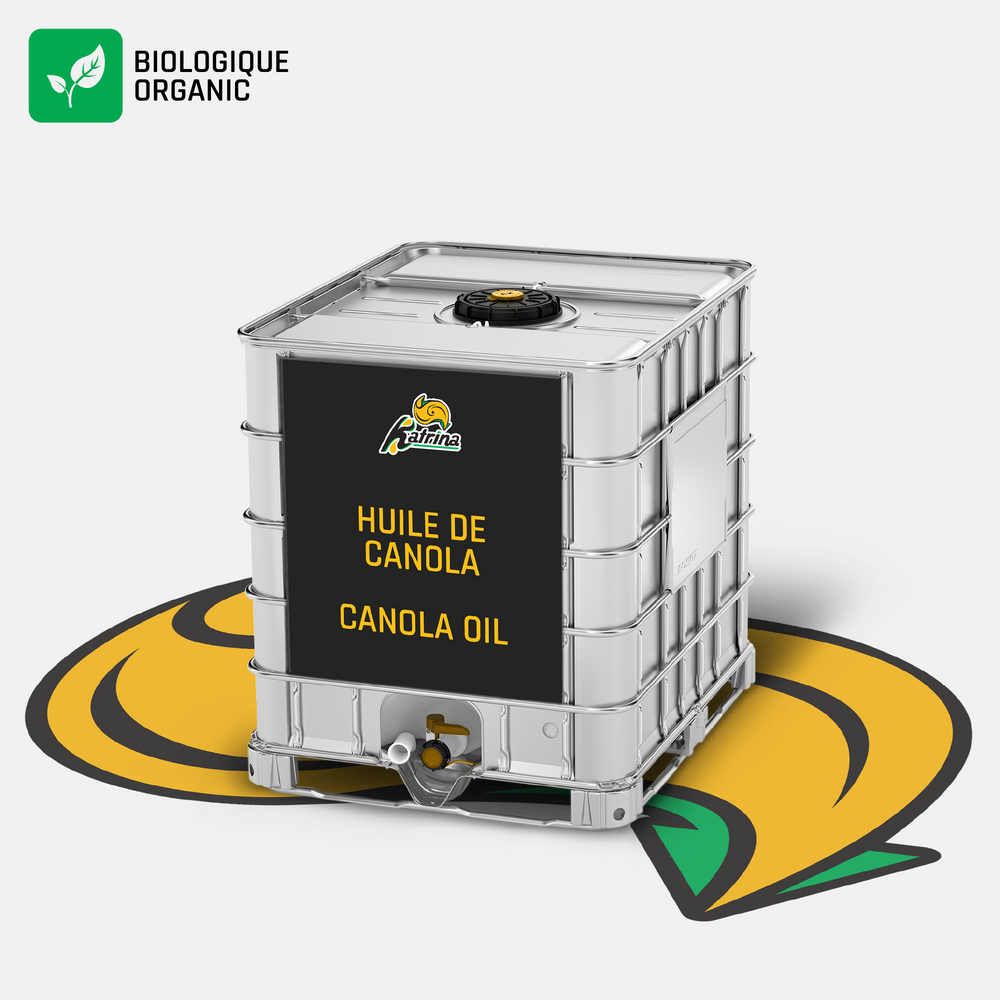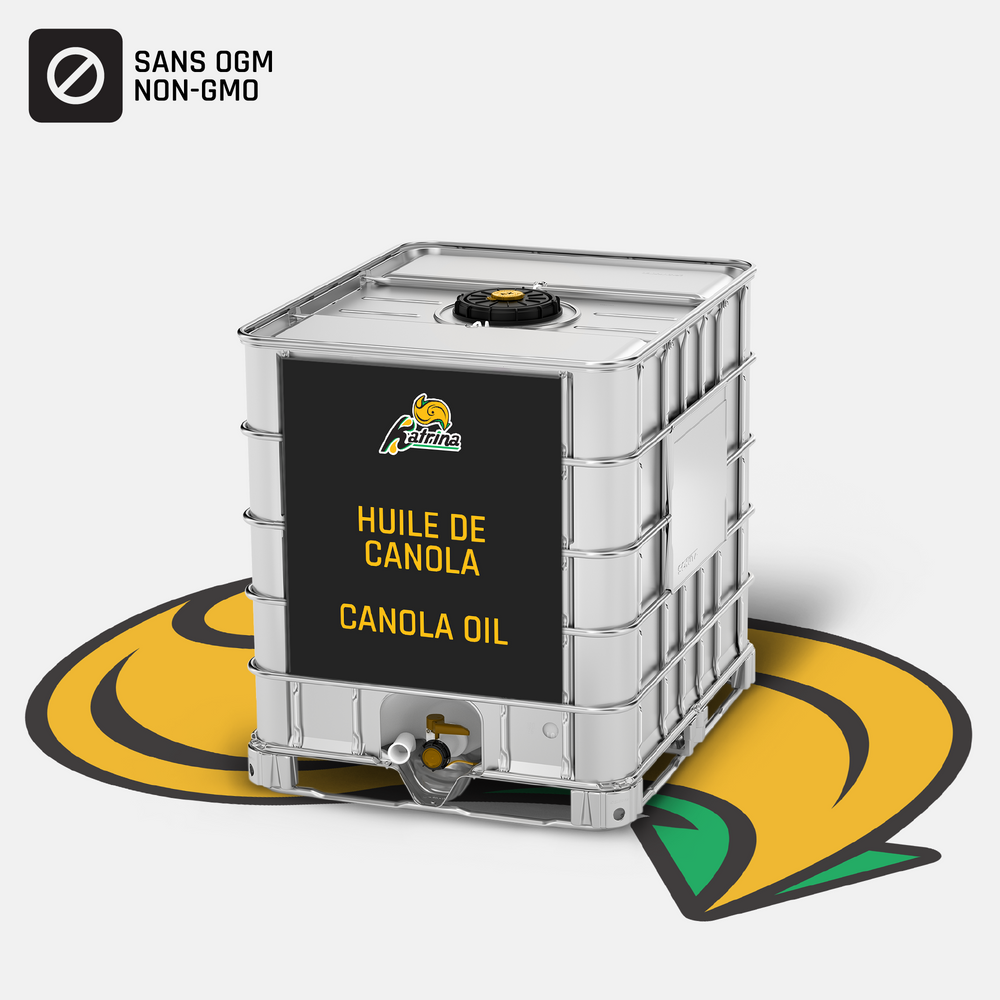What Is Organic Canola Oil & Where To Buy It?
For health-conscious consumers and chefs, organic ingredients are a top priority. But what truly sets organic canola oil apart from your usual canola oil?
It's more than just a label—organic canola oil is made using natural, chemical-free methods in every step of the production process, leading to a host of benefits. Read on to know why it deserves a spot on your ingredient list.
Canola Oil Vs. Organic Canola Oil
While both are made from canola, they differ significantly when it comes to production methods.
This starts with the seeds themselves. Organic canola oil is made from non-GMO canola seeds grown without synthetic pesticides or fertilizers. On the other hand, canola oil is not subject to strict standards, so it can be made from GMO canola seeds.
After harvest, the extraction process is different for organic and non-organic. Using chemical solvents like hexane to extract seed oil is the standard in conventional oil production. Meanwhile, organic canola oil uses a mechanical process like expeller-pressing where a continuous screw press crushes the seeds to extract the oil.
Both organic and regular canola oil can be refined after extraction to remove impurities, but again, the methods vary. The natural refining process for organic canola oil enhances clarity while preserving more of the oil's natural nutrients and flavours.
To be certified organic in Canada, producers must meet strict requirements set by regulators like the Canadian Food Inspection Agency (CFIA). This ensures the oil you purchase adheres to the highest organic standards.
Why Are People Choosing Organic?
The popularity of natural and organic ingredients reflects a growing focus on health and wellness among consumers. People are becoming more conscious of what they eat and are seeking out food that’s free from synthetic pesticides, fertilizers, and genetically modified organisms (GMOs).
If you're looking to align your menu or products with this growing demand, organic canola oil could be a great addition to your supply.
Why Restaurants And Food Manufacturers Should Consider Organic Canola Oil
Added Nutritional Value
Organic canola oil offers additional health benefits. Because it’s processed differently, organic canola oil is able to retain more nutritional value than what you get from any other canola oil. This includes a higher level of omega-3 fatty acids, monounsaturated fats like oleic acid, and vitamin E. Since the oil is extracted using mechanical methods, you’re also sure to get an oil free from chemical residues used in the extraction process.
Flavour and Smoke Point
Organic canola oil has a light and neutral flavour that makes it suitable for a wide range of culinary uses. Like other canola oil variants, it has a high smoke point for high-heat cooking like sautéing, frying, and baking.
When you’re shopping around for a supplier, expect organic canola oil to cost more than other options due to stricter production standards and higher quality ingredients. However, the potential benefits justify the price when it comes to increasingly health-conscious customers.
Where to Buy Organic Canola Oil
Restaurants and food service businesses can find organic canola oil through trusted distributors like Distributions Katrina. Purchasing in bulk from local suppliers often translates to lower costs and larger quantities, which are ideal for busy kitchens and manufacturers.
Distributions Katrina offers a wide selection of high-quality organic canola oil and other vegetable oils. If you’re interested in bulk options, click here to request a quote for free.








